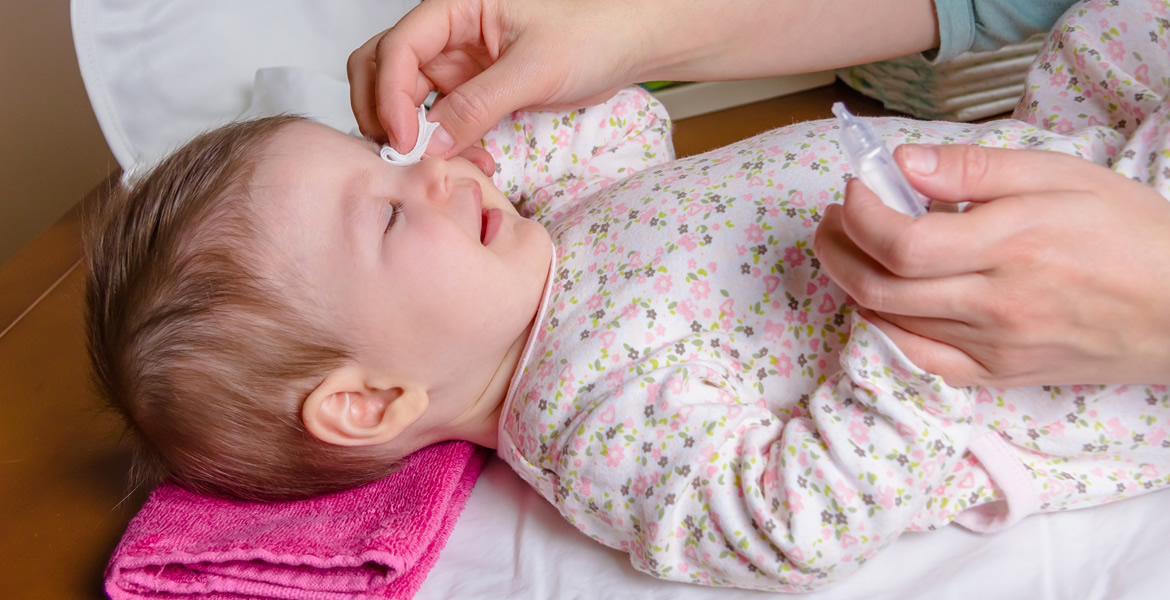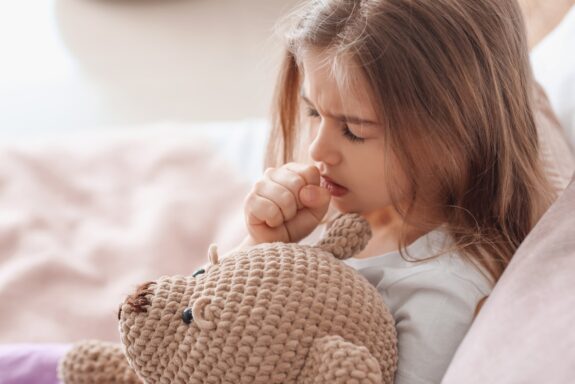
Kids are back in school! As parents we know what that means- contagious illnesses are ready and waiting.Pink Eye
We all know about “pink eye.” It’s when your child’s eye becomes inflamed and red and you are pretty sure if you tried to take them to school, they would be sent right back home! Pink eye, or “conjunctivitis” is one of the most common problems children face. As a mother of four, I dealt with pink eye several times as my children grew up, and as a pediatrician, even more.
So how do you treat this infection? And how can it be prevented?
Conjunctivitis is when the membrane that covers the inside of the eyelid and white part of the eye becomes inflamed. Sometimes this inflammation can be caused by allergies, causing severe itching. This form of conjunctivitis is not contagious. In other cases, the cause is bacterial or viral, and is very contagious.
How is pink eye caused?
Most cases of contagious conjunctivitis are viral. These are typically caused by the same virus that can also cause the common cold. Common symptoms include redness, watery or mucus discharge and a gritty sensation in the eye. The second eye usually becomes infected within 24 to 28 hours. The most common way to contract it is direct contact with an infected person’s eye discharge. For example, the virus can be transmitted when an infected person touches their own eye and then a door handle or shares an object that has touched the eye, like a towel or pillow.
Bacterial conjunctivitis is also highly contagious and is also spread by direct contact. The most common symptoms include redness and thick eye discharge throughout the day. The affected eye is often “stuck shut” in the morning.
How Do You Treat Pink Eye?
Viral conjunctivitis will disappear on its own and need not be treated with antibiotic eye drops. You can comfort your child with a warm compress over their eyes or over-the-counter lubricating eye drops (artificial tears). The symptoms may persist for 2-3 weeks.
Bacterial conjunctivitis is treated with antibiotic eye drops or ointment. Ointment is generally preferred for young children for ease of application and should be applied inside the eyelid. When started early, treatment can help shorten the duration of symptoms.
If your teen wears contacts and has symptoms of conjunctivitis, they should be evaluated by a health care professional. This is to confirm the diagnosis and to be sure something more serious related to contact lens use (infection of the cornea) is not present. If they are diagnosed with pink eye, have them wear their glasses!
When can my child return to school or day care?
The safest approach to avoid the spread of pink eye is to stay home until there is no longer any discharge from the eyes. However, this is not always practical. Most schools and daycare centers require that children receive 24 hours of antibiotic eye drops or ointment before returning to school. This is effective in preventing the spread of bacterial conjunctivitis, but is not necessary nor helpful for children with viral conjunctivitis.
Prevention
To prevent pink eye, have your children wash their hands with soap and water or use an alcohol based rub often and avoid having them touch their eyes. Change their pillowcase frequently and wash hand towels and washcloths often. Do not allow your child to reuse tissues and dispose of any infected makeup.
If you think your child has conjunctivitis make an appointment with their primary care provider! If they are unavailable, please feel free to bring them to our clinics, Little Spurs Pediatric Urgent Care. We have nine locations in San Antonio and two locations in Houston. Our clinics are open seven days a week and after we see your child we will send the visit notes over to their primary care. Thank you!
For more information please email us at info@littlespurspedi.com or call (210) 543-7334



